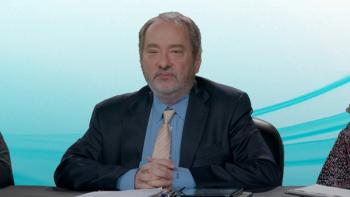
A panel of expert oncologists consider treatment options for patients with NDMM that are transplant-ineligible.

Your AI-Trained Oncology Knowledge Connection!


A panel of expert oncologists consider treatment options for patients with NDMM that are transplant-ineligible.
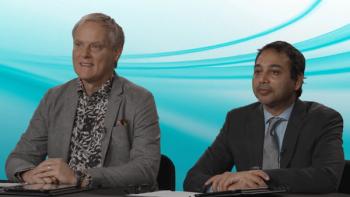
Expert perspectives on the role of transplants and induction therapy in patients with newly diagnosed multiple myeloma (NDMM).
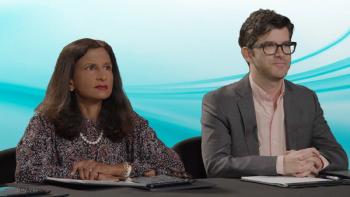
Expert panelists discuss recent data updates from the DETERMINATION, GRIFFIN, and MASTER studies.
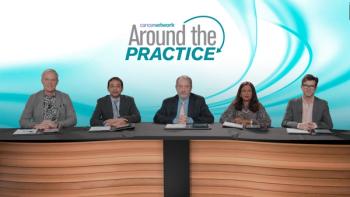
Opening their discussion on transplant-eligible newly diagnosed multiple myeloma (NDMM), expert panelists review induction regimen options for patients.

A panel of experts discusses the treatment approaches to three clinical cases of multiple myeloma in the context of data presented at recent meetings and reviews how it can be applied to daily clinical practice.
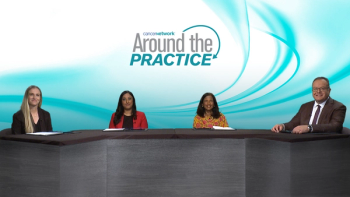
The panel closes their discussions by highlighting current unmet needs in multiple myeloma treatment and what excites them on the horizon.

Dr Patel continues the conversation of novel treatments with an examination of CAR T-cell therapies in multiple myeloma.

Amrita Krishnan, MD, and Krina Patel, MD, review promising bispecific agents under investigation for multiple myeloma treatment.

Dr Krina Patel presents the case of a relatively young patient with relapsed multiple myeloma, and Dr Caitlin Costello shares her approaches to treating relapsed/refractory multiple myeloma in her clinical practice.

The panel explains their goals of treatment for older patients with transplant-ineligible multiple myeloma, and how they determine treatment duration.

Rafael Fonseca, MD, and Krina Patel, MD, discuss the standard treatment approaches for frail or elderly patients with transplant-ineligible multiple myeloma.

Dr Caitlin Costello presents the case of a patient with transplant-ineligible multiple myeloma and sparks a conversation on the available treatment regimens.

A look at how to measure an adequate treatment response in patients with transplant-ineligible newly-diagnosed multiple myeloma, and treatment regimens for high-risk patients.

A panel of experts discusses whether all patients with multiple myeloma should undergo transplant, and how to select the optimal treatment regimens for the treatment of transplant-eligible newly-diagnosed multiple myeloma.

Amrita Krishnan, MD, presents the case of a 63-year-old woman with transplant-eligible newly-diagnosed multiple myeloma, and Caitlin Costello, MD, describes the design and outcomes of recent trials in the transplant eligible setting.
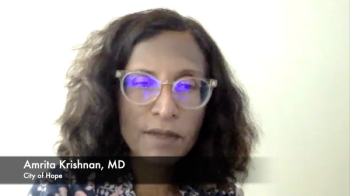
Amrita Y. Krishnan, MD, spoke about where future research in multiple myeloma is headed and a take-home message for her colleagues about teclistamab in heavily pretreated patients.

Amrita Y. Krishnan, MD, spoke about the use of teclistamab vs real-world data in patients with relapsed/refractory multiple myeloma.

This look ahead at hematologic malignancies in 2017 focuses on new agents being studied for the treatment of multiple myeloma, Hodgkin lymphoma, non-Hodgkin lymphoma, and myeloproliferative neoplasms.

Results of important studies addressing the optimal consolidation regimen and choice and duration of maintenance therapy are eagerly awaited, but it is evident that ASCT is imperative in the treatment of younger patients with multiple myeloma.

In the past, multiple myeloma was a disease with grim prospects for survival, and few therapeutic options. Today we have a multitude of options, and the armamentarium will continue to expand.

Most physicians are less aware of clinical presentations of the various heavy chain diseases, due in great part to their low incidence and highly variable clinical course. Heavy chain diseases are rare lymphoproliferative B-cell disorders whose hallmark is the accumulation and secretion of truncated constant heavy chains without the associated light chains.